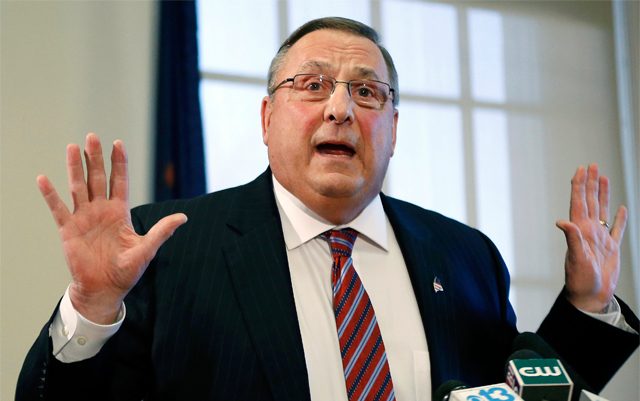It’s not uncommon for politicians to use their position to support or oppose certain issues – but it would be nice to see them at least try to base their arguments against marijuana legalization in facts for once. Most of the videos we’ve seen released against the multiple citizens initiatives throughout the country have been paid for by the opposition and air both online and on television – however, the Governor of Maine, Paul LePage, recently uploaded a video on YouTube and Facebook where he explains (poorly) why be believes that Mainers should vote “no” on Question 1.
In the video, he makes some claims that we’ve heard in almost every state – such as those about drugged driving increasing after legalization. Luckily, ATTN was quick to bring up a new report by the Drug Policy Alliance, which disproves this fallacy using federal statistics on fatal crashes involving drugged driving in Colorado and Washington, showing that they have not only steadily decreased over the last decade (including post-legalization) but also that they are lower than the national average.
Another point that is commonly made by the opposition is that marijuana is stronger now than it was in the 60s and 70s – and while this may be true to a degree, it doesn’t change much. People generally smoke, vape or eat less when they have a more potent strain or edible, in order to achieve a certain state – so stronger cannabis only means it will take less for people to get the desired effects.
However, the two most ridiculous claims he made are that “people who are addicted to marijuana are three times more likely to be addicted to heroin” and that “THC levels in marijuana snacks are so high they could kill children and pets”. The first one – well there are a few things wrong with that statement. For one, marijuana has no physically addicting properties, though in some it may cause a psychological dependence; second, states with legal marijuana, both medicinal and recreational, have seen a reduction in opiate and heroin related overdoses and cannabis is being explored as a treatment option for addicts.
The second statement – about how high THC levels in cannabis edibles could kill children and pets – is also a fear-based statement with absolutely nothing to back it up. There have been absolutely no recorded deaths of adults or children due to a cannabis overdose. In pets, there have been rare occurrences of pets dying after ingesting a marijuana edible – however in those cases it was also possibly attributed to the edible being made of chocolate, making it impossible to determine if the cannabis played a role in the death of the pet.
On top of the above ridiculous statements, the Maine governor went on to state that marijuana would be smoked anywhere, and even consumed and sold at state fairs – however, while Maine’s initiative would allow for limited public use, it would be subject to the same laws as tobacco smoke, requiring you to be in a designated area. He also claimed that it would not allow employers to fire employees based on marijuana consumption – and that is false, as the initiative specifically states that it does not change any existing laws governing employer and employee relations.
Overall, the Governor could have at least tried to come up with some new arguments – or at least do a bit better at trying to find things he could back up – rather than things we could simply debunk with a few good Google searches. Some of these arguments could have been left out entirely if he had simply read over the initiative a little bit better before making this public service announcement. In the end, it is up to Maine voters to decide whether or not to regulate and tax cannabis – and hopefully they will all take the time to see what Question 1 would really mean for their state, rather than simply taking the word of others.






